When pondering a move to Ethiopia or merely trying to adjust your budget, understanding the costs associated with daily life is essential. In cities like Addis Ababa, costs can vary broadly based on lifestyle choices and residential areas.
Though Ethiopia offers a broad range of living standards, a comfortable yet modest lifestyle is within reach for many. The landscape of expenses includes rent, groceries, commuting fares, and occasional leisure activities, which we'll elaborate on through the lens of various cities and towns across the nation.
Housing Costs
In Ethiopia, the price of housing can be as diverse as its culture. In urban areas like Addis Ababa, the capital, housing costs are notably higher compared to other cities such as Dire Dawa or Hawassa. This is largely attributable to Addis Ababa's status as both a diplomatic hub and a commercial center, attracting both foreigners and locals seeking opportunities.
In the bustling city of Addis Ababa, you might expect to pay anywhere from $300 to $1000 per month for a modest apartment, depending on the exact location and amenities offered. Areas like Bole and Cazanchise, known for their relative affluence and security, command higher rents. Conversely, in more peripheral districts like Akaki or Jemo, rents are significantly cheaper, offering more budget-friendly options without straying far from city amenities.
Rental costs in other cities are different altogether. For instance, in Dire Dawa, a comfortable two-bedroom apartment may cost around $150 to $400 per month, significantly less than in the capital. This variation mirrors the cost of living adjustments that many must consider when moving from city to countryside. Ethiopia's real estate market reflects a broad spectrum of economic settings, accommodating a wide array of budgets and lifestyles.
This diversity in housing costs across different regions illustrates the critical influence of location on accommodation prices. It's not just about the city but also about the specific neighborhood. In some cases, even different streets within the same area can have contrasting rental prices. For anyone planning to settle in Ethiopia, such information is crucial in budgeting for housing expenses effectively.
Transportation Expenses
Navigating through Ethiopia provides a variety of transportation options, each with its distinct set of costs. In major cities like Addis Ababa, the use of public transportation such as buses and the light rail is commonplace. The light rail, inaugurated in 2015, serves as a pioneering project in sub-Saharan Africa and significantly eases the daily commute for thousands. A monthly pass for public transportation can range typically from 200 to 300 Ethiopian Birr, making it a budget-friendly option for most residents.
For personal transportation, many opt for purchasing or renting cars, though this often entails higher expenses due to fuel costs and maintenance. The price of gasoline fluctuates around 21.50 ETB per liter, which can amount substantially over time. Taxation on vehicles in Ethiopia is relatively high, aiming to discourage excessive car ownership and promote environmental sustainability. Thus, owning a car is considered a luxury more than a necessity.
Beyond the city confines, traveling between towns and regional states often involves buses or minibusses known as 'matatus'. These are relatively affordable but vary in comfort levels. Long-distance travel within Ethiopia by bus can cost from 300 to 500 ETB depending on the distance and the service level of the bus line. In some cases, where routes are less developed, traveling by minibus offers a peek into the local way of life, albeit with potentially less predictability and comfort compared to other means of transport.
For those looking to avoid ground transportation, domestic flights operated by Ethiopian Airlines and other carriers provide swift connectivity between major cities and tourist destinations like Lalibela, Gondar, and the Simien Mountains. While more expensive, air travel cuts down significantly on travel time and offers a comfortable alternative. A typical round trip fare from Addis Ababa to Gondar might range between 2000 to 4000 ETB, varying with seasonal demands and booking timelines.
Food and Daily Needs
When planning your budget for living in Ethiopia, understanding food and daily necessities costs is essential. Whether you're purchasing basic staples or indulging in the local cuisine, Ethiopia offers an array of options tailored for all budgets. Shopping habits greatly influence your monthly expenses because prices can differ drastically from local markets to supermarkets. For a single person, a monthly grocery bill can typically range from $50 to $200, depending on individual preferences and dietary habits.
Staple foods in Ethiopia include injera (a sourdough flatbread), teff (a highly nutritious grain), lentils, and a variety of meats and vegetables. These are readily available in local markets at relatively low prices. For example, teff, which is used to make injera, is much cheaper when bought locally than imported goods. Ethiopians often enjoy meals such as Doro Wot, a spicy chicken stew, and Shiro, a delicious chickpea powder-based dish, which are both affordable and nourishing.
While the options are plentiful, the cost of food can rise if you prefer international products, which are often imported and carry a higher price tag. Supermarkets in major cities like Addis Ababa offer a wide range of foreign goods but shopping here can quickly inflate your monthly food expenses. Moreover, dining out regularly can also affect your budget significantly. A meal at an inexpensive restaurant might cost around $3 to $5, whereas a dinner at a mid-range restaurant can set you back about $15 to $25 per person.
For those who prefer cooking at home, local markets offer fresh fruit, vegetables, and meats at lower prices than supermarkets. Engaging with local vendors not only supports the community but also helps you adapt to the local way of life and understand the culinary culture. Immersing yourself in the food market scene of Ethiopia is both a cultural learning experience and a smart financial move.
Entertainment and Leisure
When it comes to entertainment and enjoying one’s leisure time, Ethiopia offers a vibrant cultural scene and a variety of recreational activities catering to locals and tourists alike. If you’re living in or visiting Ethiopia, knowing what’s on offer can significantly enhance your lifestyle and provide wonderful opportunities to relax and enjoy.
Cinema is a popular pastime in Ethiopia, with a growing film industry that produces movies reflecting the diverse cultures and stories of the country. Major cities, particularly Addis Ababa, feature cinemas that screen both local and international films. For the culturally inclined, events such as film festivals are also scattered throughout the calendar year, showcasing classics and contemporary works from across Africa and the globe.
For those who enjoy outdoor activities, Ethiopia is a goldmine. The country’s stunning landscapes provide the perfect backdrop for hiking, bird watching, and visiting historical sites that are peppered throughout the nation. Places like the Simien Mountains offer breathtaking views and challenging treks for the adventurous spirit. Additionally, the Rift Valley lakes are idyllic spots for fishing, bird watching, and boat rides, making them perfect weekend getaway locations.
Musical events are another key aspect of Ethiopian entertainment. The country’s music scene is incredibly rich and varies markedly from region to region. In a single evening, one can experience traditional folk music featuring unique instruments like the masinko, and then switch things up with contemporary styles that blend jazz, reggae, and Ethiopian pop. Venues in Addis Ababa frequently host live music nights, attracting both locals and visitors eager to dance the night away.
Ethiopian cuisine also plays a significant role in the leisure landscape. Participating in a traditional coffee ceremony is not just about drinking coffee, but also embracing a cherished cultural ritual that fosters community and togetherness. Restaurants, both upscale and local, offer opportunities to taste an array of dishes that are as diverse as Ethiopia’s regions. Whether it’s sampling the fiery berbere spice mix in a dish of doro wat or enjoying freshly caught fish from Lake Tana, the culinary experiences are pivotal to understanding and relishing Ethiopian culture.
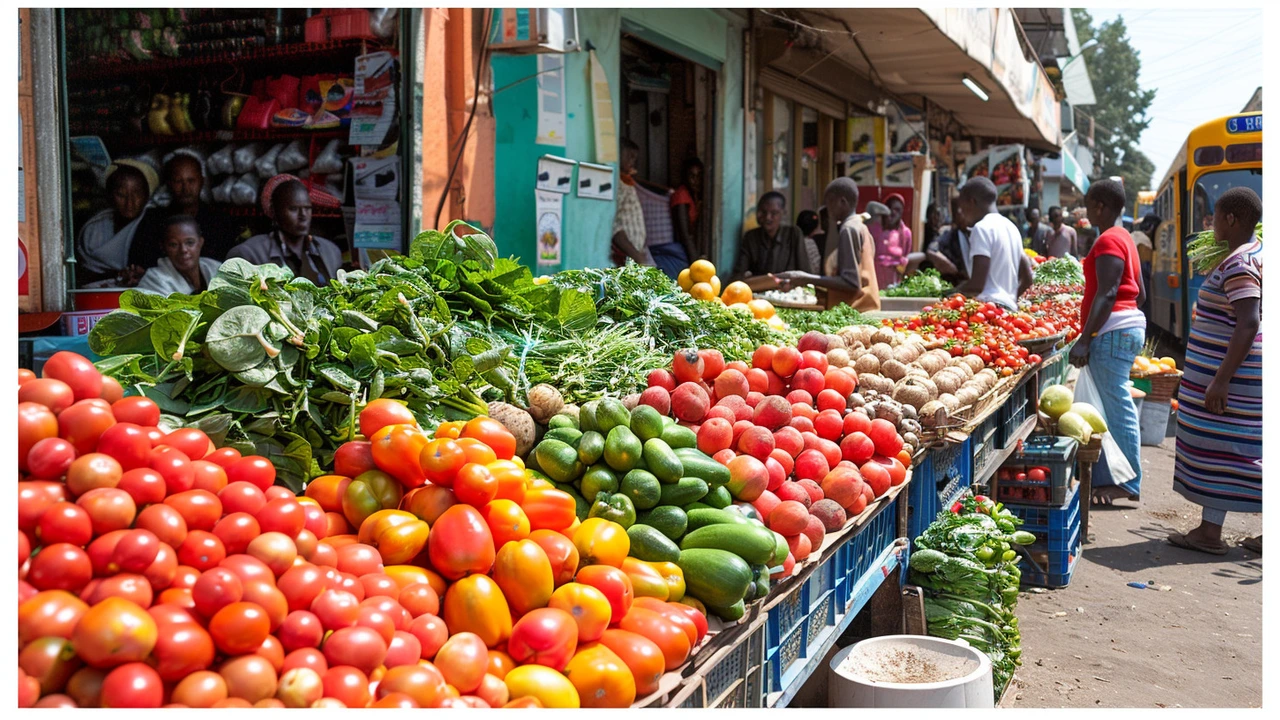
 Discover the Highest Paid Jobs in Ethiopia: An In-Depth Guide
Discover the Highest Paid Jobs in Ethiopia: An In-Depth Guide
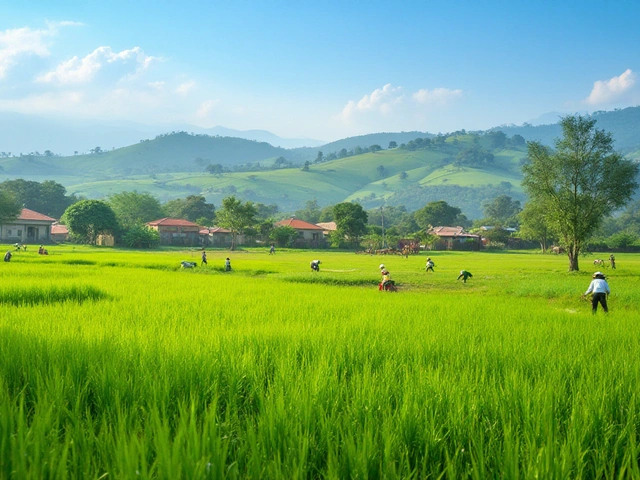 Discovering the Richest Fields in Ethiopia: Agriculture, Coffee, Culture, and More
Discovering the Richest Fields in Ethiopia: Agriculture, Coffee, Culture, and More
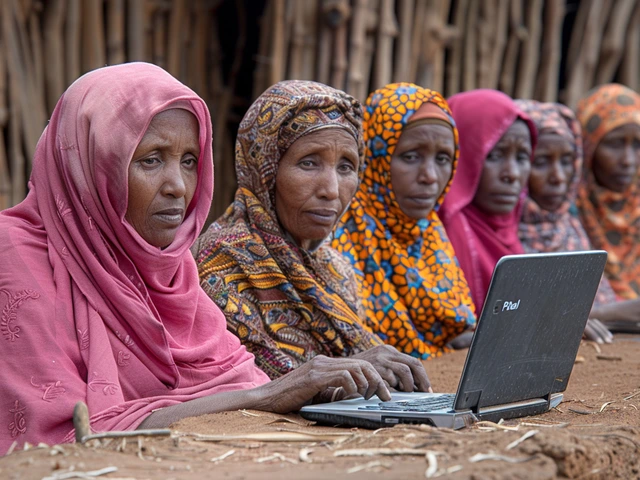 Navigating PayPal Banking Integration in Ethiopia: A Comprehensive Guide
Navigating PayPal Banking Integration in Ethiopia: A Comprehensive Guide
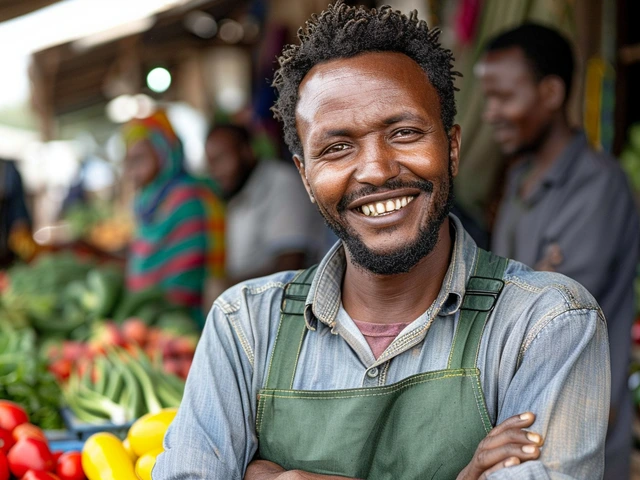 Top Jobs in Ethiopia: Exploring Common Careers
Top Jobs in Ethiopia: Exploring Common Careers
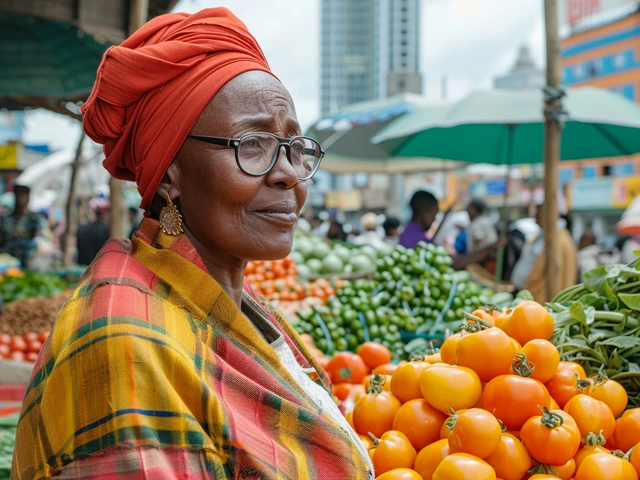 Navigating Business Risks in Ethiopia: Opportunities and Challenges
Navigating Business Risks in Ethiopia: Opportunities and Challenges
Chirag P
May 14, 2024 AT 20:15When you stroll through the bustling markets of Addis, you’ll notice that bartering is common and can shave a few dollars off the price of fresh produce. Engaging with the vendors also gives you a glimpse into daily life and often leads to recommendations for the best local dishes. Buying teff flour in bulk from a neighborhood shop frequently costs less than purchasing pre‑packaged packets at supermarkets. If you’re looking to keep your grocery bill between $50 and $150, focus on seasonal vegetables and legumes that are abundant locally. The occasional trip to a farmer’s cooperative can also provide organic options at competitive rates.
RUBEN INGA NUÑEZ
May 17, 2024 AT 13:35The monthly public‑transport pass in Addis typically ranges from 200 to 300 Ethiopian Birr, which converts to roughly $3.50‑$5.20 USD at the current exchange rate of 57 ETB per dollar. This calculation assumes the official rate; unofficial market rates may differ slightly. For budgeting purposes, it’s advisable to allocate around $5 per month for transit if you rely primarily on buses or the light‑rail system. Should you need occasional taxi rides, budgeting an additional $20‑$30 per month will cover most short trips.
Michelle Warren
May 20, 2024 AT 06:55The food prices here are as wild as the wildlife on the Simien peaks!
Christopher Boles
May 23, 2024 AT 00:15If you’re new to Ethiopia, start by setting up a modest rent budget of $250‑$400 in the outskirts of Addis; this gives you a safe distance from the city buzz while still keeping commute times reasonable.
Crystal Novotny
May 25, 2024 AT 17:35Not all that glitters is gold-expats often overestimate the comfort of central districts only to find hidden costs lurking behind sleek facades.
Reagan Traphagen
May 28, 2024 AT 10:55The government’s heavy taxation on vehicle ownership is a clear sign of how the state tries to control personal freedom and force citizens into public transport, a policy that many view as an overreach of authority.
mark sweeney
May 31, 2024 AT 04:15Honestly, if you think a $3‑$5 meal is cheap you’re missing the point that most locals survive on far less, so the “affordability” narrative is just a Western illusion.
randy mcgrath
June 2, 2024 AT 21:35In the grand scheme, the cost of living is merely a reflection of what we value in our daily rituals and how we choose to allocate our time.
Frankie Mobley
June 5, 2024 AT 14:55When comparing housing options, remember that utilities such as water and electricity are often billed separately and can add $30‑$60 to your monthly expenses depending on usage.
ashli john
June 8, 2024 AT 08:15Don’t forget to factor in occasional cultural events-many festivals are free and a great way to experience local traditions without spending extra money
Kim Chase
June 11, 2024 AT 01:35While the culinary scene is indeed vibrant, it’s also worth noting that cooking at home with local ingredients can dramatically reduce your monthly spend compared to dining out every night.
David Werner
June 13, 2024 AT 18:55Some say the high vehicle taxes are less about traffic management and more about funneling revenue into undisclosed projects that never see the light of day.
Paul KEIL
June 16, 2024 AT 12:15From a cost‑optimization perspective, the marginal utility of public transit passes diminishes once your commuting frequency exceeds the break‑even threshold, suggesting a hybrid model of occasional ride‑sharing could enhance fiscal efficiency.
Horace Wormely
June 19, 2024 AT 05:35Just to clarify, the conversion should read “57 ETB per USD” rather than “57 ETB per dollar”; precision matters in financial explanations.
christine mae cotejo
June 21, 2024 AT 22:55When planning a move to Ethiopia, the first step is to create a detailed month‑by‑month budget that accounts for all major expense categories.
Start with housing, allocating between $250 and $600 depending on whether you prefer a peripheral neighborhood or a more central district.
Remember that most rental agreements require a security deposit equal to one month’s rent, which adds an upfront cost.
Next, calculate transportation costs by estimating the number of trips you’ll make on the light‑rail, buses, and occasional taxis.
A realistic figure is $5 for a monthly pass plus $20 for occasional taxi rides, but if you plan to rent a car, factor in fuel at roughly $0.38 per liter and maintenance fees.
Food expenses can vary widely; setting a baseline of $100 per month allows you to purchase staple items like teff, lentils, and seasonal vegetables from local markets.
If you enjoy imported goods or dining at upscale restaurants, increase this figure by another $100‑$150 to avoid unpleasant shortfalls.
Utilities such as electricity, water, and internet typically cost between $30 and $70 per month, with internet plans ranging from $15 to $30 depending on speed.
Health insurance is another crucial line item; expats often opt for private plans that start at $40 per month, while local insurance options may be cheaper but offer limited coverage.
Entertainment and leisure, including cinema tickets, museum entries, and weekend hikes, can be modestly budgeted at $20‑$40 per month if you prioritize free community events.
Don’t overlook the cost of occasional domestic flights, which, while not a daily expense, can add $200‑$400 annually for trips to regions like Gondar or Lalibela.
It is wise to set aside an emergency fund equivalent to at least one month’s total expenses, which serves as a buffer against unexpected medical or travel costs.
Currency fluctuations can impact your budget, so monitoring the ETB‑USD exchange rate regularly helps you adjust spending and avoid surprises.
Finally, integrate a small discretionary amount for personal development-books, language classes, or hobby supplies-to enrich your experience without compromising financial stability.
By following this structured approach, you’ll gain a clearer picture of the true cost of living in Ethiopia and can make informed decisions that align with your lifestyle goals.
Douglas Gnesda
June 24, 2024 AT 16:15The breakdown you provided is thorough; however, consider consolidating the housing and utilities into a single line item to simplify tracking and make adjustments easier as your needs evolve.
Abhijit Pimpale
June 27, 2024 AT 09:35One quick tip: buy teff in bulk from wholesale markets; the price per kilogram drops significantly and you’ll save both money and storage space.
Eric DE FONDAUMIERE
June 30, 2024 AT 02:55Don’t forget to explore community groups on social media; many expats share real‑time deals on everything from grocery discounts to affordable rental listings, which can further trim your budget.